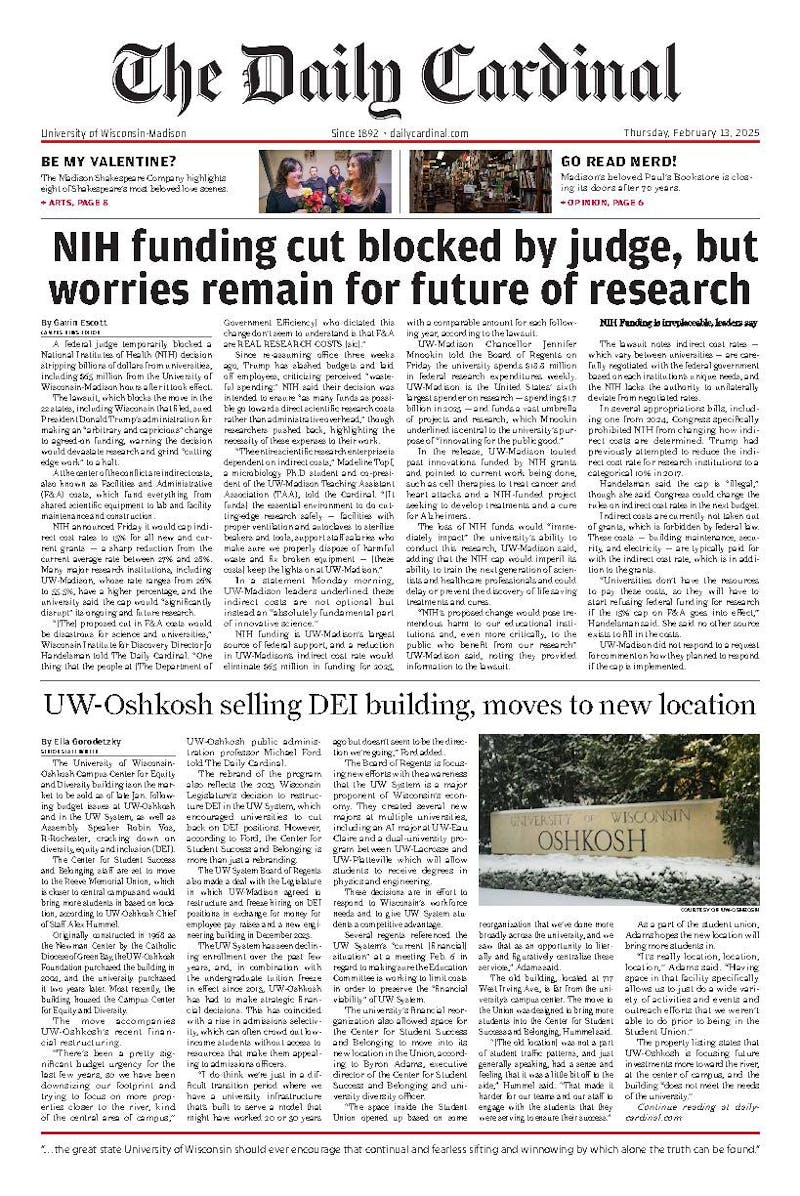Several panelists discussed funding options for public higher education at a public forum at Memorial Union Tuesday.
The panel evaluated methods for gaining public support for higher education while continuing to develop tuition payment strategies in Wisconsin.
According to the panel, public support for financial assistance in higher education has continued to dwindle in the face of economic turmoil. Panelists said health care, transportation and K-12 education have instead taken precedence.
According to Noel Radomski, director of the Wisconsin Center for the Advancement of Postsecondary Education, the financial problems of public higher education institutions like UW-Madison can be attributed to increased cuts on university appropriations. Issues of student accessibility have also arisen because of steady tuition increases, he said.
""Higher education costs are rising faster than the rate of health care ... but in periods of state fiscal crises, higher education institutions quite often receive disproportionate cuts,"" he said.
The increasing cost of higher education makes it less attractive to potential students and contributes to the growing rate of debt for undergraduates, he said. Radomski said the average debt for 2008 graduates was $21,000 and 52 percent of students graduate with debt.
Panelists said the search for an effective method for financing higher education persists, though numerous initiatives are being discussed.
According to UW System President Kevin Reilly, radical plans might be necessary to facilitate long-term financial change. He proposed a tuition discount for students who graduate in four years or less and emphasized potential three-year degree programs that include full-time summer schedules.
However, Reilly said he recognizes that without more widespread public support, such proposals will fail.
""If the public doesn't buy the value proposition, there's very little that will be a successful financing model,"" he said.
The forum was the first in a series that seeks to create an ongoing discussion about possible means of financing public higher education in Wisconsin. In the future, the panel hopes to have contributions from other prominent figures, such as Chancellor Biddy Martin.






